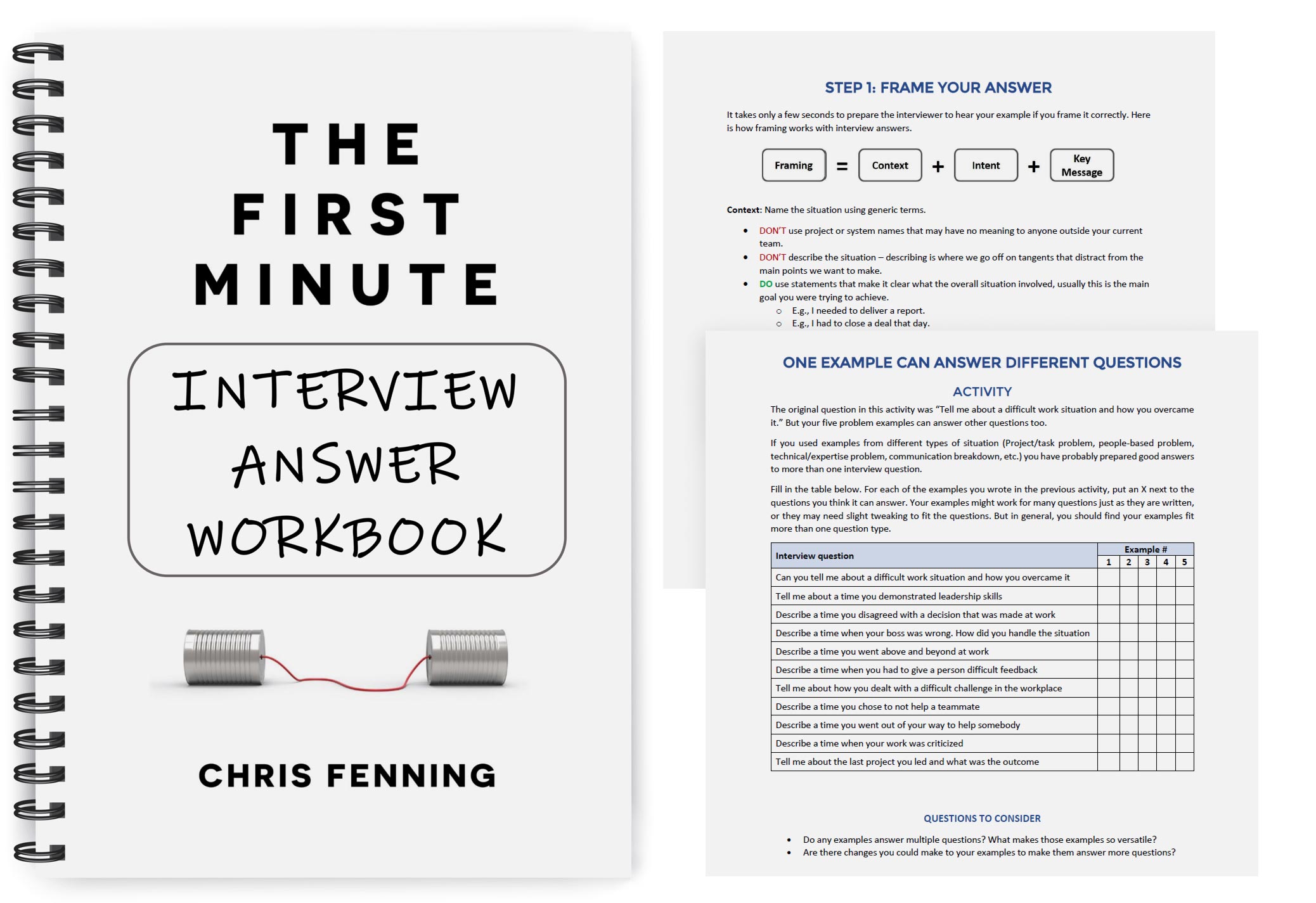If you are looking for a single answer, like ‘six minutes’, you’re going to be disappointed. There isn’t one right or wrong number of minutes for an answer. Every question you’re asked, and every answer you give will be different length. But there is one thing that remains true in all situations. Your answers should be as short as possible.
Why should interview answers be short?
There are three main reasons why interview answers should be short:
- Short answers mean you can give more examples
- Long answers are boring
- Long answers prevent conversations
Short answers mean you can give more examples
The longer you take to answer a question the fewer questions the interviewer can ask. Fewer questions means fewer opportunities to show why you have the skills and experience for the job.
Most interviews are less than an hour. If you take 10 minutes answering every question, you’ll only give six answers in the hour. That may sound like a bit of an extreme example, but I have interviewed people where this actually happened. And I can tell you this, those people did not get the job.
Long answers are boring
Unless you are a fantastic storyteller any answer longer than three minutes is going to become boring. Interviewers want highlights and headlines to get to the answer they are looking for. Sure, there needs to be some detail to support the key points, but too much detail is boring and takes time.
Long answers prevent conversation
Interviews shouldn’t be one-sided. A job interview should be a conversation between human beings. Conversations don’t happen when one person spends all the time talking.
If you answer an interview question with a long answer you are assuming you know exactly what the interviewer wants to hear. Yes, they asked you a question, but what if your answer doesn’t quite deliver what they want? If you don’t know this your five minute answer might be burning time on the wrong topic.
If your answer is short, you can ask if your example is the type of thing they want to hear about. Getting confirmation is helpful to know you are on the right track. It also gives the other person a chance to ask about a specific point. Turn your interview into a conversation by giving short answers and giving the other person the chance to delve deeper into your answer.
What if your answer is too short?
One-word answers are bad in an interview. You need to give enough detail to really answer the question. But short answers have one great benefit, they can always be expanded. The interviewer can ask you to go into more detail or to explain something more. They can never ask you to say less about something after you’ve spent the time giving a long answer.
If you don’t feel comfortable giving short answers, you can always end with a question. Give a short answer then ask ‘Would you like me to expand on any part of that?’. That way the other person can ask for more detail or move on if they’ve heard enough.
Conclusion
How long should you spend answering interview questions? As little time as possible to get your point across and answer the question. You should do all you can to avoid long answers because long answers are usually bad. Long answers are boring. They limit the number of examples you can give during an interview. And they prevent real conversation.
Don’t fall into the trap of thinking more detail is better. It isn’t. Short answers with clear points are always the best start.
To find out more about giving great answers in interviews, check out my book, The First Minute — Interview Answer Workbook. This 30-page instructional guide and workbook shows you the step-by-step process for creating clear, concise answers to tough interview questions.
Learn more with my book
The First Minute Interview Answer Workbook

Communication is listed as a top-five skill for almost all companies. There is no better time to show you have clear and concise communication than when answering interview questions.
This instructional guide and workbook shows you the step-by-step process for creating clear, concise answers to tough interview questions. The guidance and activities in this book will improve the quality of your interview answers.
- Section 1 of this workbook covers the theory behind creating great interview answers. Examples are given to demonstrate the methods.
- Section 2 provides activities and exercises for identifying the topics and problems you can use as examples in your interview. Activities then guide you through the creation of examples and answers you can use in your next interview. The result will be shorter, more organised examples that you can take with you to your next interview.
